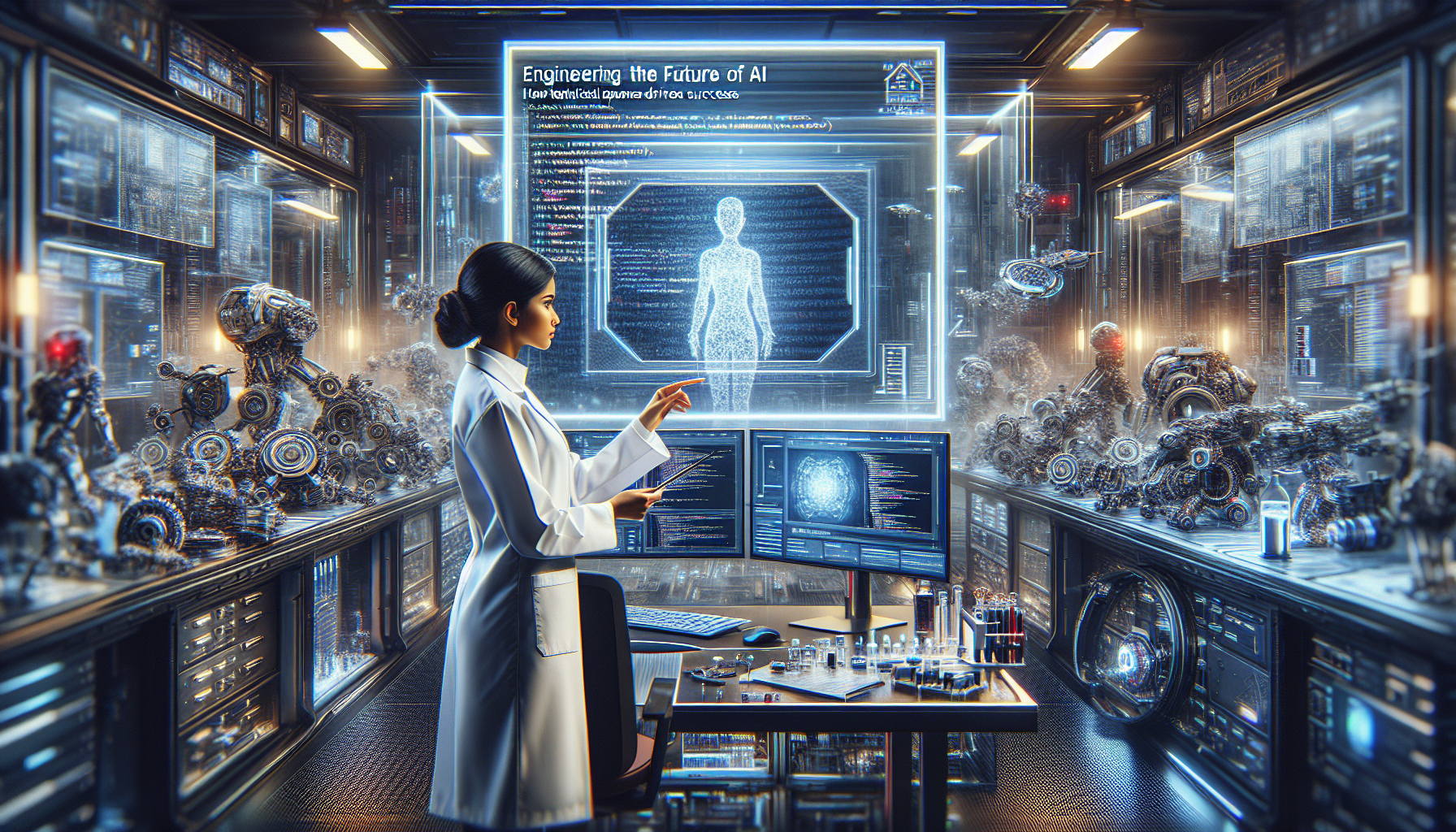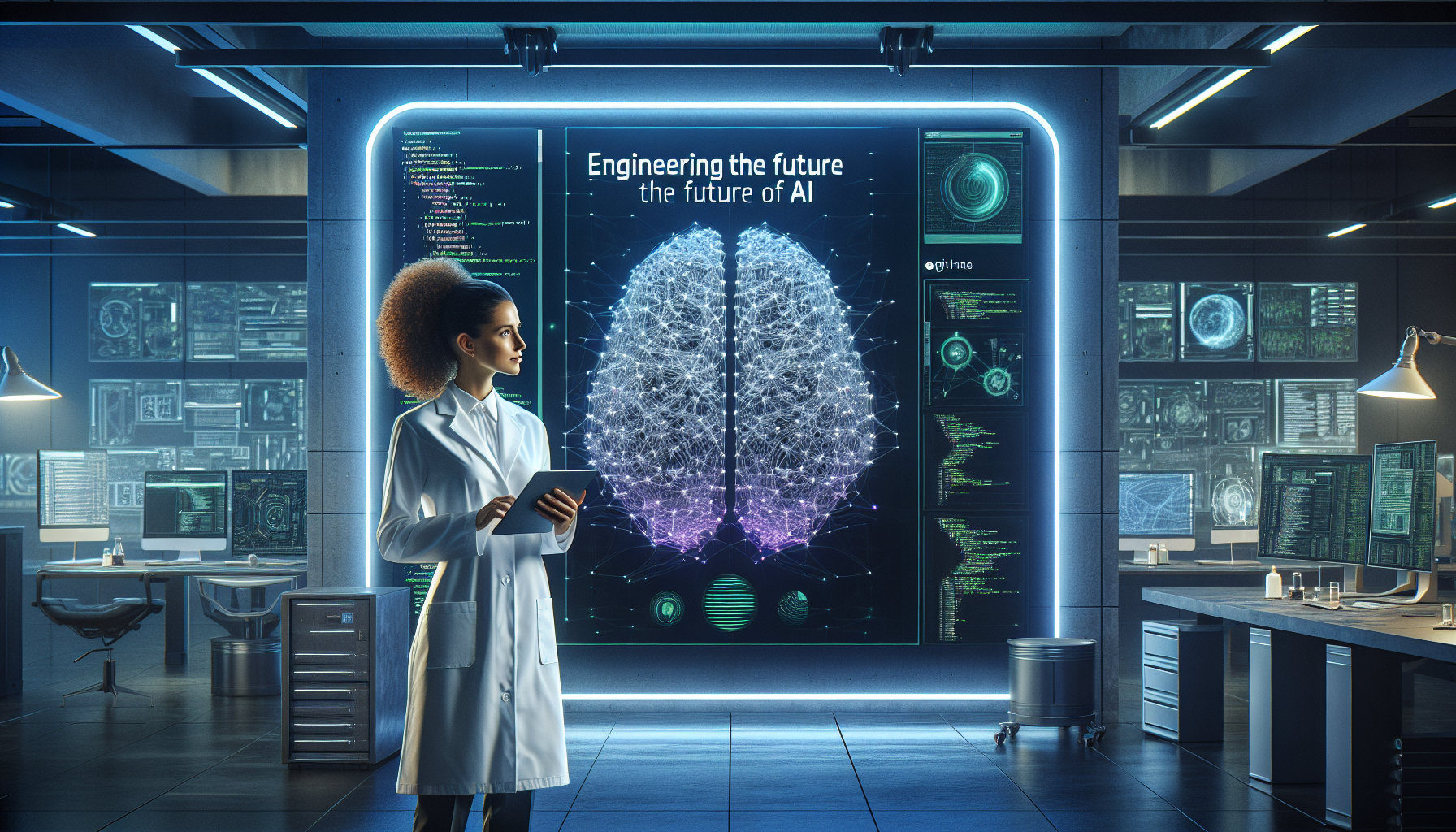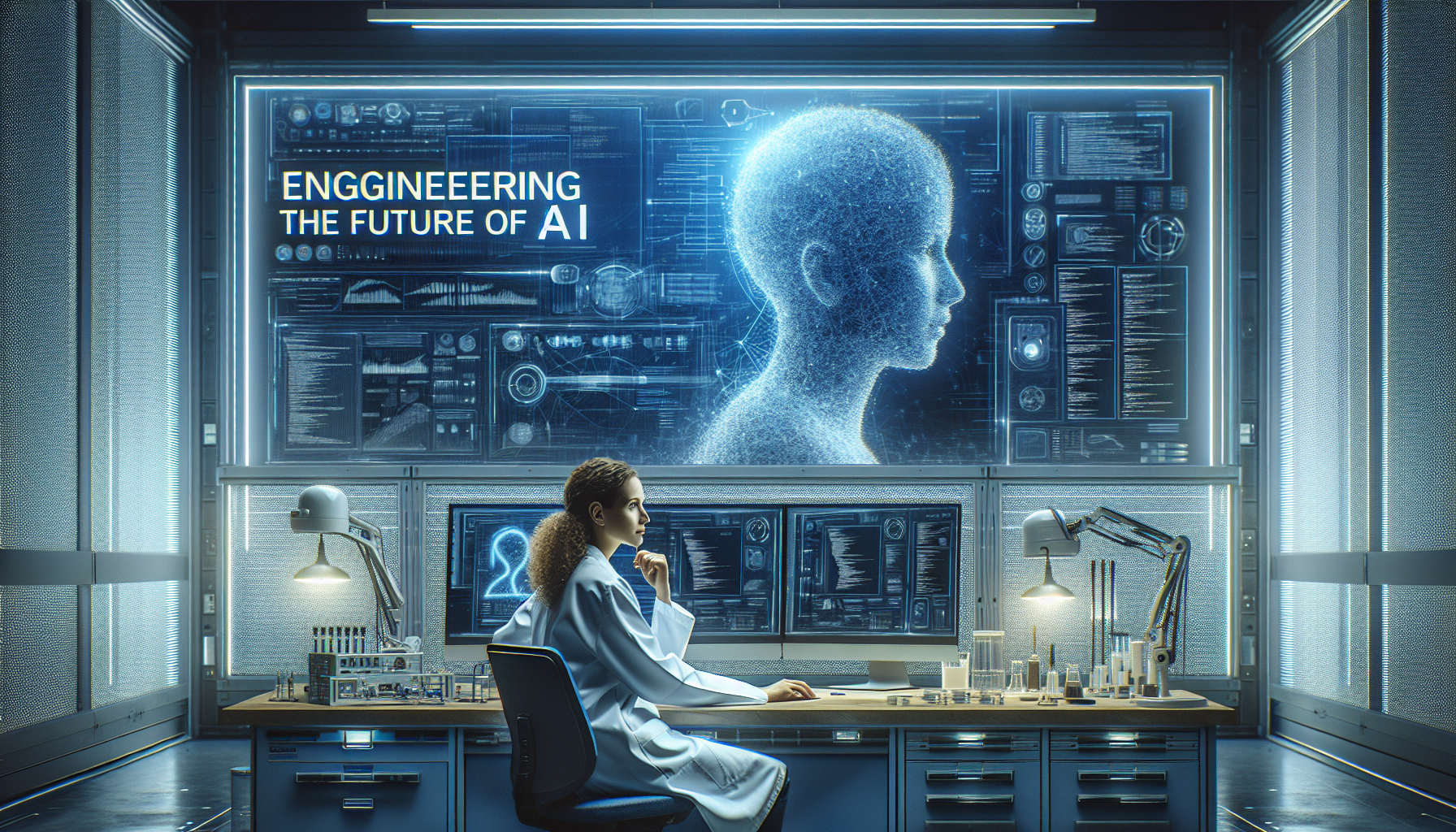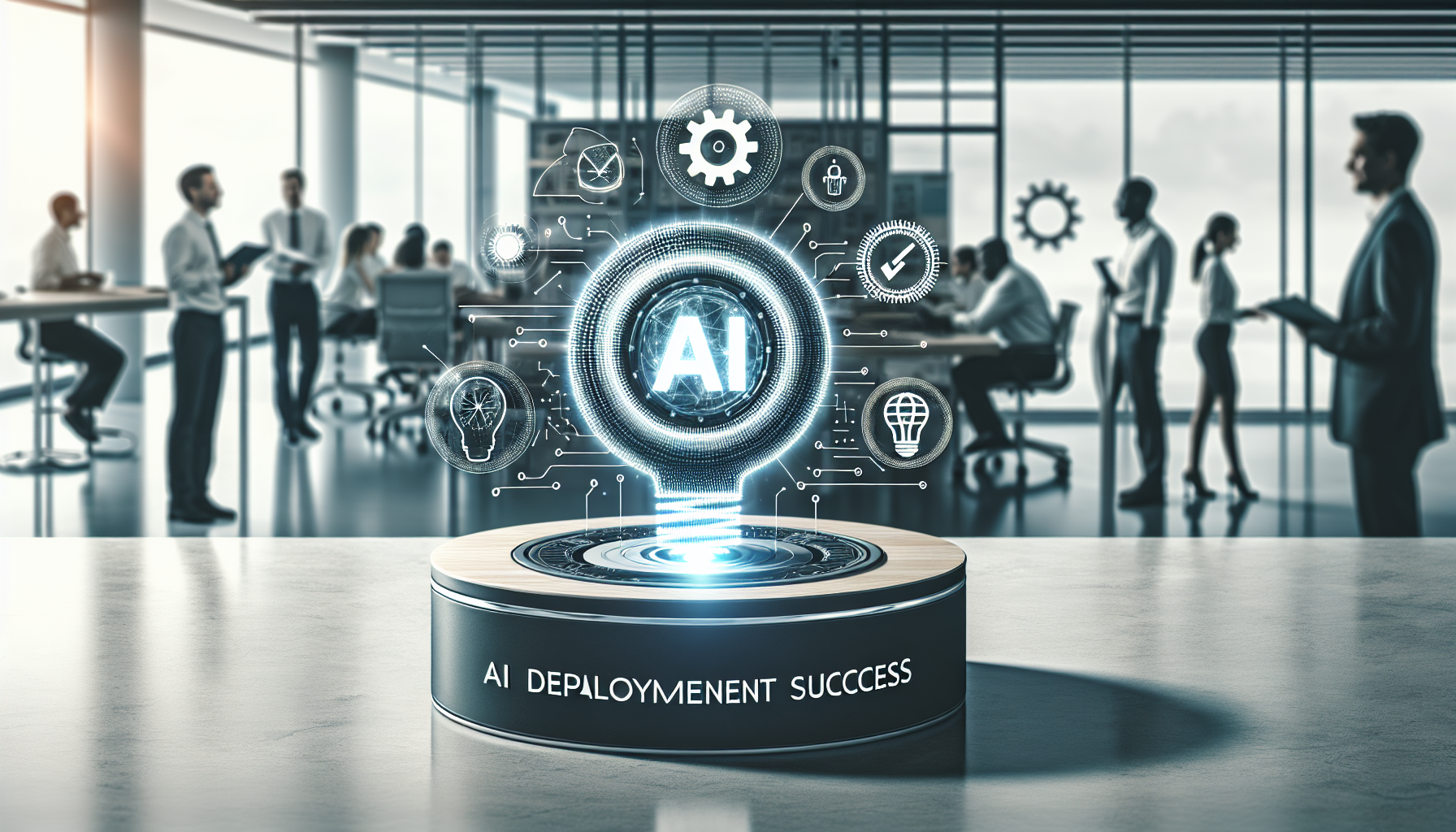**Unlocking AI Success: The Role of Engineering in AI Deployment**
The integration of Artificial Intelligence (AI) into various industries has revolutionized the way businesses operate, making it more efficient, productive, and competitive. However, the successful deployment of AI solutions requires a deep understanding of the technical complexities involved. In this article, we will explore the crucial role of engineering in AI deployment success, highlighting the key challenges, solutions, and best practices for implementing AI solutions.
**Understanding the AI Implementation Process**
The AI implementation process involves several stages, from data preparation to model deployment. Each stage requires careful planning, execution, and monitoring to ensure the successful deployment of AI solutions. Engineers play a vital role in navigating these stages, leveraging their technical expertise to overcome challenges and optimize AI performance.
**Technical Challenges in AI Implementation**
AI implementation is not without its technical challenges. Some of the common challenges faced by engineers include:
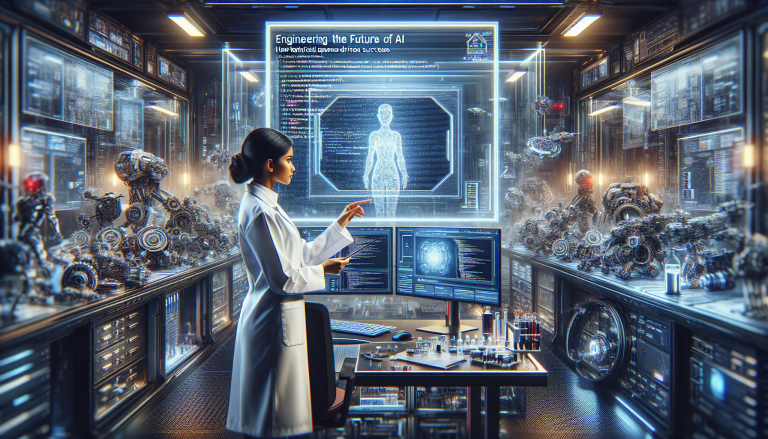
| **Challenge** | **Description** |
| — | — |
| Data Quality Issues | Poor data quality can lead to biased models, inaccurate predictions, and decreased AI performance. |
| Model Complexity | Complex models can be difficult to train, deploy, and maintain, requiring significant engineering resources. |
| Integration with Legacy Systems | Integrating AI solutions with existing systems can be challenging, requiring careful planning and execution. |
**Engineering Solutions to Technical Challenges**
To overcome these technical challenges, engineers can employ several strategies:
| **Strategy** | **Description** |
| — | — |
| Data Preprocessing | Preprocessing data to ensure quality, accuracy, and relevance is crucial for building effective AI models. |
| Model Simplification | Simplifying complex models can make them easier to train, deploy, and maintain. |
| API Integration | Integrating AI solutions with legacy systems using APIs can facilitate seamless communication and data exchange. |
**Creative Applications of AI in Real-World Scenarios**
AI has numerous creative applications in real-world scenarios, including:
* **Predictive Maintenance**: AI-powered predictive maintenance can help industries such as manufacturing and healthcare reduce downtime and improve overall efficiency.
* **Personalized Medicine**: AI-driven personalized medicine can help healthcare providers tailor treatment plans to individual patients, leading to better health outcomes.
* **Smart Cities**: AI-powered smart cities can optimize traffic flow, energy consumption, and waste management, making cities more livable and sustainable.
**Integrating AI into Legacy Systems**
Integrating AI solutions with legacy systems can be challenging, but it is essential for realizing the full potential of AI. Engineers can use various strategies to integrate AI into legacy systems, including:
| **Strategy** | **Description** |
| — | — |
| API-Based Integration | Integrating AI solutions with legacy systems using APIs can facilitate seamless communication and data exchange. |
| Data Mapping | Mapping legacy system data to AI model inputs can help ensure accurate and relevant data exchange. |
| Workflows Optimization | Optimizing workflows to accommodate AI-driven processes can improve overall system efficiency and productivity. |
**Best Practices for AI Implementation**
To ensure successful AI implementation, engineers should follow best practices, including:
* **Data-Driven Decision Making**: Making data-driven decisions is crucial for building effective AI models and optimizing AI performance.
* **Continuous Monitoring and Evaluation**: Continuously monitoring and evaluating AI performance can help identify areas for improvement and optimize AI solutions.
* **Collaboration and Communication**: Collaboration and communication between engineers, stakeholders, and end-users are essential for ensuring successful AI implementation.
**Conclusion**
The successful deployment of AI solutions requires a deep understanding of the technical complexities involved. Engineers play a vital role in navigating the AI implementation process, leveraging their technical expertise to overcome challenges and optimize AI performance. By following best practices and employing creative solutions, engineers can unlock the full potential of AI, driving business success and innovation.
**”AI is not about using software to make robots think like humans, but about using software to enhance human capabilities.”** – Andrew Ng
**”The future is not something we enter, but something we create.”** – Buckminster Fuller
